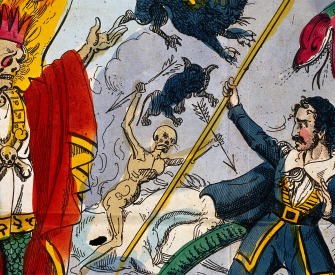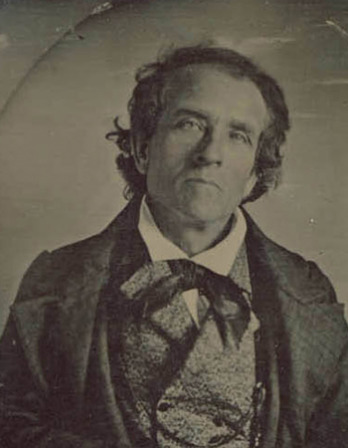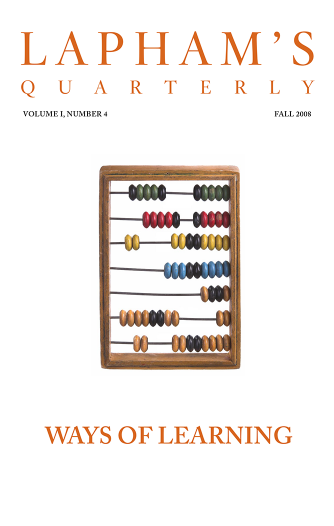We are told by Lincoln that he is utterly opposed to the Dred Scott decision, or will not submit to it, for the reason that he says it deprives the Negro of the rights and privileges of citizenship. That is the first and main reason which he assigns for his warfare on the Supreme Court of the United States and its decision.
I ask you, are you in favor of conferring upon the Negro the rights and privileges of citizenship? Do you desire to strike out of our state constitution that clause which keeps slaves and free Negroes out of the state, and allow the free Negroes to flow in and cover your prairies with black settlements? Do you desire to turn this beautiful state into a free Negro colony, in order that when Missouri abolishes slavery she can send 100,000 emancipated slaves into Illinois to become citizens and voters on an equality with yourselves? If you desire Negro citizenship, if you desire to allow them to come into the state and settle with the white man, if you desire them to vote on an equality with yourselves and to make them eligible to office, to serve on juries, and to adjudge your rights, then support Mr. Lincoln and the Black Republican party, who are in favor of the citizenship of the Negro. For one, I am opposed to Negro citizenship in any and every form. I believe this government was made on the white basis. I believe it was made by white men, for the benefit of white men and their posterity forever, and I am in favor of confining citizenship to white men, men of European birth and descent, instead of conferring it upon Negroes, Indians, and other inferior races.
The question then arises, what rights and privileges are consistent with the public good? This is a question which each state and each territory must decide for itself; Illinois has decided it for herself. We have provided that the Negro shall not be a slave, and we have also provided that he shall not be a citizen, but protect him in his civil rights, in his life, his person, and his property, only depriving him of all political rights whatsoever, and refusing to put him on an equality with the white man. But the Republicans say that he ought to be made a citizen, and when he becomes a citizen he becomes your equal, with all your rights and privileges. They assert the Dred Scott decision to be monstrous, because it denies that the Negro is or can be a citizen under the Constitution. Our fathers intended that our constitutions should differ. They knew that the North and the South, having different climates, productions, and interests, required different institutions. This doctrine of Mr. Lincoln, of uniformity among the institutions of the different states, is a new doctrine, never dreamed of by Washington, Madison, or the framers of this government. Mr. Lincoln and the Republican party set themselves up as wiser than these men who made this government, which has flourished for seventy years under the principle of popular sovereignty, recognizing the right of each state to do as it pleased. I believe that this new doctrine preached by Mr. Lincoln and his party will dissolve the Union if it succeeds.
From the first of seven debates with Abraham Lincoln during the Illinois senatorial campaign. The Supreme Court’s decision a year earlier in the Dred Scott case was the second time that the Court deemed an act of Congress—the Missouri Compromise—unconstitutional. The Court held that neither Congress nor territorial legislatures could exclude slavery from a territory. The incumbent Douglas won reelection but lost to Lincoln two years later in the presidential race. When Lincoln delivered his first inaugural address on March 4, 1861, seven states had already seceded from the Union.
Back to Issue





